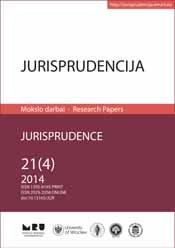DECENTRALIZATION IN ROMANIA: A CONSTANT FAILED REFORM UNDER SCRUTINY FROM THE CONSTITUTIONAL LIMITS PERSPECTIVE
DECENTRALIZATION IN ROMANIA: A CONSTANT FAILED REFORM UNDER SCRUTINY FROM THE CONSTITUTIONAL LIMITS PERSPECTIVE
Author(s): Radu Carp, Andra Karla Anghel- SienerthSubject(s): Law, Constitution, Jurisprudence
Published by: Mykolas Romeris University
Keywords: administrative capacity; Constitutional Court; decentralization; European Charter of Local Self-Government; subsidiarity.
Summary/Abstract: Decentralization is mentioned in the Romanian Constitution of 1991 as a principle of public administration, without being defined. A framework-law was adopted only in 2004, after the revision of the Constitution, and it was entirely abrogated in 2006 by another framework-law. None of these laws have been fully applied, because they were made of general principles and of public policy statements. The article discusses the draft law on decentralization of 2013 that was declared unconstitutional by the Constitutional Court in January 2014. The Constitutional Court has developed in the Decision No. 1/2014 the argument that it has jurisdiction to decide not only on the unconstitutionality of the law, but also on the inconsistency between it and the legal framework. The Court relied on its previous jurisprudence and also on that of the ECHR and the CJEU and concluded that the draft law on decentralization “does not meet the constitutional requirements regarding the quality of the law”. Consequently, the account of decentralization, since the introduction of this concept in the Constitution of 1991 up to now, is extremely unsatisfactory. The transfer of powers from central to local levels, the essence of decentralization, was limited and was done mainly in a descriptive form of the competences of local authorities by the successive laws concerning the local administration. A gradual approach was preferred, extremely cautious regarding the implementation of decentralization. The European Charter on Local Autonomy, albeit transposed in Romanian law since 1997, had no influence on the drafting of two framework laws from 2004 and 2006, a rule that even the law from 2013 makes no exception to. The article describes how the principle of subsidiarity has been incomplete or faulty defined by these frameworks-laws and, consequently, it was impossible to apply it. Other principles, such as proportionality or consultation of local authorities on decisions that directly affect them, were not introduced in the Romanian legislation. Until the failed attempt to conduct the transfer of competences in 2013, an approach merely describing the principles and stages of decentralization was the option. There is also the option to specify from the very beginning which are the institutions which competences are to be transferred to a lower level due to decentralization. This alternative was avoided, probably due to the finding of a weak administrative capacity that causes decentralization to result in institutions that cannot exercise their powers invested with.
Journal: Jurisprudencija
- Issue Year: 21/2014
- Issue No: 4
- Page Range: 1208-1232
- Page Count: 25
- Language: English

